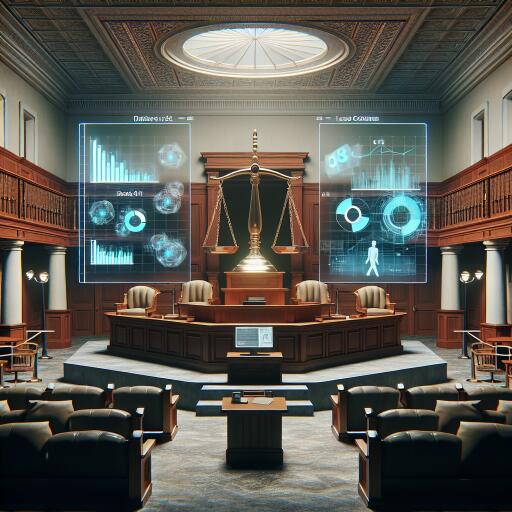Major Setback for Net Neutrality as U.S. Court Temporarily Halts Biden’s Restoration Efforts
In a significant turn of events, a recent decision by a U.S. appellate court has put a temporary halt on the reinstatement of net neutrality rules, a move that aligns with President Joe Biden’s administration’s efforts. This standstill represents a pivotal moment in the ongoing debate over the regulation and freedom of the internet.
The decision was handed down by the Sixth Circuit U.S. Court of Appeals, which has voiced its inclination to believe that broadband providers will succeed in their legal battle against net neutrality regulations. This development came after the Federal Communications Commission (FCC) had voted in favor of regaining its authority over broadband internet, aiming to restore the 2015 open internet directives that were previously rescinded during Donald Trump’s presidency.
The court’s intervention has postponed the implementation of these foundational internet principles, with oral arguments scheduled to unfold later in the year. This delay is a significant stumbling block in the Biden administration’s campaign to ensure an open and equitable internet.
Expressing the weight of the court’s decision, the Sixth Circuit articulated its stance on the matter, citing the imposition of net neutrality as a “major question.” It further communicated that the FCC has not met the stringent criteria required for enforcing such comprehensive regulations without explicit authorization from Congress.
The essence of net neutrality lies in its aim to create an unbiased internet where service providers treat all data and users equally. This neutrality forbids internet service providers (ISPs) from discriminating against content, slowing down connection speeds for certain users, or engaging in any form of traffic manipulation. Under the proposed regulations, actions such as blocking or throttling traffic to specific websites would be prohibited, alongside the elimination of paid prioritization for lawful content. Furthermore, these rules would grant the FCC enhanced capabilities to oversee internet service outages and heighten scrutiny over Chinese telecom enterprises.
FCC Chair Jessica Rosenworcel, responding to the court’s ruling, reaffirmed her commitment to an open internet, stating, “The American public wants an internet that is fast, open, and fair. Today’s decision by the Sixth Circuit is a setback, but we will not give up the fight for net neutrality.”
Reestablishing net neutrality has surfaced as a key agenda for Biden, who underscored his stance in a July 2021 executive order. This order encouraged the FCC to reinstate the 2015 rules implemented under the Obama administration, marking a continuous Democrat-led initiative to safeguard the internet’s open-access principle.
The previous administration under Trump contested the necessity of net neutrality, arguing it stifled innovation and led to reduced investment in network infrastructure by ISPs—a claim met with opposition from Democrats.
As the discourse around net neutrality continues to evolve, this recent court ruling underscores the complexity and contentious nature of regulating the digital landscape. Stakeholders from across the spectrum are keenly watching as the legal proceedings unfold, understanding the profound impact these decisions will have on the future of internet access and freedom.









